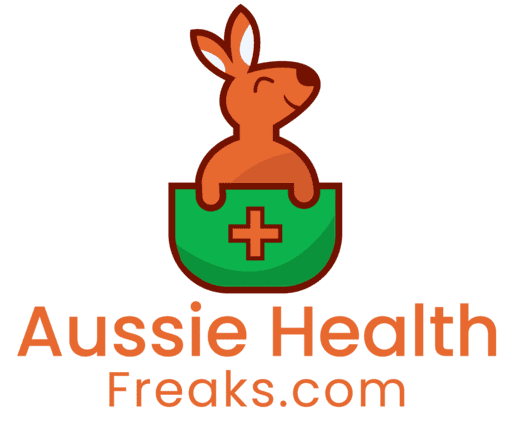Nutrition is the cornerstone of any successful fitness journey. Whether your goal is to build muscle, lose weight, or improve overall health, what you eat plays a crucial role in your progress. This blog will explore key nutrition tips, including the importance of macronutrients, hydration, pre- and post-workout meals, supplements, and debunking common diet myths, all with the aim of helping you optimize your diet to achieve your fitness goals.
Understanding Macronutrients:
Macronutrients are the nutrients your body needs in large amounts: carbohydrates, proteins, and fats. Each macronutrient plays a specific role in your fitness journey:
- Carbohydrates: Carbs are the body’s primary source of energy, particularly during high-intensity workouts. They fuel your muscles and brain, helping you perform at your best. Opt for complex carbs like whole grains, fruits, and vegetables, which provide sustained energy.
- Proteins: Protein is essential for muscle repair and growth. After a workout, your muscles need protein to recover and build strength. Include lean protein sources like chicken, fish, tofu, and legumes in your diet.
- Fats: Healthy fats are crucial for hormone production, brain function, and energy. Incorporate sources of unsaturated fats, such as avocados, nuts, seeds, and olive oil, into your meals to support overall health.
Balancing these macronutrients in your diet ensures that your body has the energy and nutrients it needs to perform and recover effectively.
The Importance of Hydration:
Staying hydrated is one of the simplest yet most effective ways to enhance your fitness performance. Water is involved in nearly every bodily function, including regulating temperature, transporting nutrients, and removing waste. Dehydration can lead to fatigue, reduced endurance, and impaired cognitive function, all of which can hinder your workouts. Aim to drink water throughout the day, and consider electrolyte-rich beverages during intense exercise or hot weather to maintain optimal hydration levels.
Pre-Workout Nutrition:
What you eat before a workout can significantly impact your performance. A well-balanced pre-workout meal or snack should provide a mix of carbs and protein to fuel your muscles and sustain energy levels. Some examples of effective pre-workout snacks include:
- A banana with a tablespoon of peanut butter
- Greek yogurt with berries
- A slice of whole-grain toast with avocado
Aim to eat your pre-workout meal about 1-2 hours before exercising to allow for proper digestion and energy availability during your workout.
Post-Workout Recovery:
Post-workout nutrition is just as important as pre-workout, as it helps replenish glycogen stores, repair muscle tissue, and reduce muscle soreness. A combination of protein and carbohydrates is ideal for post-workout recovery. Consider options like:
- A protein shake with a banana
- Grilled chicken with sweet potato
- A smoothie with spinach, protein powder, and frozen berries
Eating within 30-60 minutes after your workout maximizes the benefits of your post-workout meal, ensuring your body recovers efficiently.
Supplements for Enhanced Performance:
While a balanced diet should be the primary source of nutrients, supplements can play a supportive role in achieving your fitness goals. Some popular supplements include:
- Protein Powder: An easy way to increase your protein intake, especially post-workout.
- BCAAs (Branched-Chain Amino Acids): Help reduce muscle soreness and support muscle recovery.
- Multivitamins: Ensure you’re getting all the essential vitamins and minerals your body needs, especially if your diet is lacking in certain areas.
AussieHealthFreak.com offers a range of high-quality supplements designed to support your fitness journey, from protein powders to specialized vitamins.
Diet Myths and Facts:
There are many diet myths that can mislead people on their fitness journey. Here are a few common ones debunked:
- Myth: Carbs are bad for you.
Fact: Carbohydrates are essential for energy, especially during workouts. The key is to choose complex carbs over simple sugars. - Myth: You need to cut out all fats to lose weight.
Fact: Healthy fats are vital for your body’s functions. Focus on unsaturated fats and avoid trans fats. - Myth: You need to eat protein immediately after a workout.
Fact: While protein intake after a workout is beneficial, the timing isn’t as critical as once thought. What’s more important is your overall daily protein intake.
By understanding the facts and avoiding common diet myths, you can make informed choices that support your fitness goals.
Creating a Balanced Meal Plan:
Creating a meal plan that aligns with your fitness goals involves balancing macronutrients and ensuring you’re consuming enough calories to support your activity level. Here are sample meal plans for different objectives:
- Weight Loss: Focus on calorie control, lean proteins, and high-fiber foods to keep you full.
- Muscle Gain: Increase your protein and calorie intake to support muscle growth.
- Maintenance: Balance your meals with a mix of carbs, proteins, and fats to sustain your current fitness level.
Tailor your meal plan to your specific goals, preferences, and lifestyle to ensure it’s sustainable in the long term.
Conclusion:
Nutrition is the cornerstone of any successful fitness journey. By understanding macronutrients, staying hydrated, timing your meals effectively, and supplementing wisely, you can optimize your diet to support your fitness goals. Remember that achieving these goals is a combination of consistent exercise and balanced nutrition. Explore the range of diet and weight loss products available on AussieHealthFreak.com to help you on your path to a healthier, fitter you.





